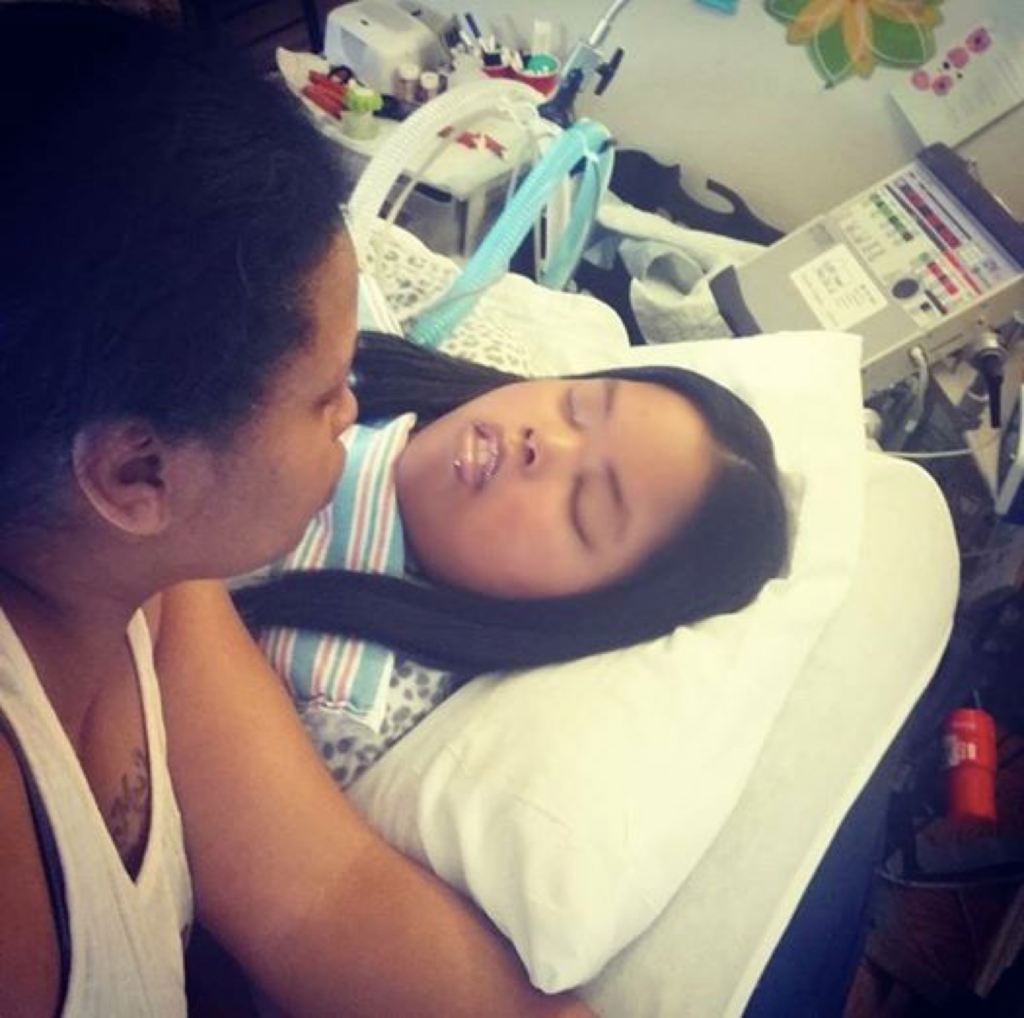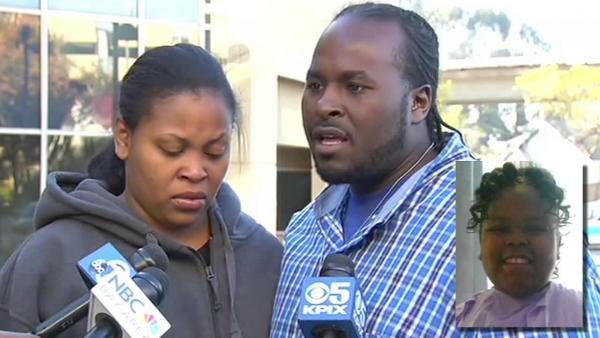
Remember Jahi McMath? Its been more than three years since she entered UCSF Benioff Children’s Hospital in Oakland in December 2013 for a routine tonsillectomy to correct her sleep apnea. At that time, the then 13-year-old McMath went into cardiac arrest and sustained massive, irreversible brain injuries.
Now, a Northern California judge is expected to determine soon whether or not to revoke her death certificate and essentially declare her “alive” again.
According to the Associated Press, court documents were filed last month to support the family’s lawsuit to have Jahi’s death certificate revoked. Retired neurologist Alan Shewmon said that videos recorded by Jahi’s family 2014-2016 show that the teen is still alive.
Jahi’s family has long insisted that the teen, who was declared dead at age 13 in December 2013, was still alive, routinely posting updates about her and showing video clips of her twitching her fingers and toes.
As AP notes, several doctors, including two hired by an Alameda County court, have noted that brain-dead patients can still move or twitch sightly.
Jahi’s mother, Nailah Winkfield, however believes that her daughter has severe brain damage but is still alive. She said that it's her Christian belief that compels her to help keep Jahi on life support.
The family has reportedly not subjected Jahi to tests that are accepted by the American Medical Association to determine whether someone is brain-dead.
Here are some of the past videos showing Jahi's progress:
Published on September 25, 2016, a facebook video shows Jahi actually taking breaths on her own. See for yourself below:
According to court documents, McMath was admitted to Children’s Hospital Oakland to have an adenotonsillectomy, uvulopalatopharyngoplasty and submucous resection of bilateral inferior turbinates performed. It was hoped these procedures would provide improved airflow during her sleep at night. The hospital described these procedures as complicated. The family described the surgery as a routine tonsillectomy in media reports.
READ: What Does It Really Mean When They Call Someone 'Brain Dead?'
After the initial surgeries were performed, McMath was conscious and according to her mother Latasha “Nailah” Winkfield, asked for a Popsicle while in the recovery room.

On December 9, 2013, McMath suffered massive blood loss and consequent cardiac arrest. According to McMath’s doctors at Children’s Hospital Oakland, the loss of blood circulation caused whole brain death. On December 12, 2013, her doctors declared her brain-dead. Her family was informed that she was legally dead, and that as a result, life support systems would be discontinued. Her family refused to accept the medical declaration of death by neurological criteria, said that McMath was not dead, and initiated legal proceedings in an effort to require the hospital to continue treatment.
Her family won a high-profile legal battle to keep their daughter’s life support machine turned on in 2014, despite a coroner issuing her death certificate.
From the East Bay Times in July 2016, the author writes: Jahi McMath’s family cleared another important hurdle in its legal battle when a state appellate court ruled that...
...the child’s mother could try to prove the girl is alive. In a brief First Appellate Court ruling Tuesday, the court denied appeals by UCSF Benioff Children’s Hospital Oakland and Dr. Frederick Rosen that claimed Jahi was declared legally dead in January 2014 and therefore should be recognized as deceased in the civil trial.
The family continues to document Jahi's movements, progress and breathing as in the video above. The family is so very thankful for prayers and continues to recieve support via their facebook page, here.
Jahi is currently in New Jersey, where her family moved her, because of state law that forbids doctors from taking brain-dead patients from ventilators if families have religious objections. New Jersey Medicaid has since picked up some of the cost of Jahi’s care, although the exact amount has not been disclosed.
A judge is expected to rule on the case in the in the Fall of 2017 to determine whether the lawsuit will be allowed to go forward.
To find out more about how you can support and thelatest on Jahi, click here.









